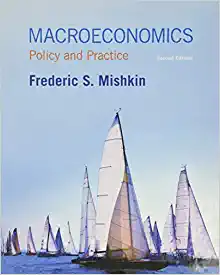Question
Identify and discuss three (3) key economic issues for consideration ( Please write at least three paragraphs) Article: Canada's back-to-school What I Did on My
Identify and discuss three (3) key economic issues for consideration ( Please write at least three paragraphs)
Article:
Canada's back-to-school "What I Did on My Summer Vacation" essay will have a pretty compelling top to it this year. "I replaced the country's economic leadership in the midst of a global economic crisis." Lots of people questioned the federal government's wisdom in shoving finance minister Bill Morneau (scandals and all) out the door with the recovery from the COVID-19 lockdowns barely begun, his emergency spending measures still in place and loads of work yet to be done. That came only a couple of months after lots of people questioned the government's decision to replace Bank of Canada governor Stephen Poloz rather than ask him to postpone his retirement after launching a barrage of policy actions that no Canadian central banker had ever tried before. Now we have Chrystia Freeland in Finance, overseeing the country's fiscal policy; and Tiff Macklem as Bank of Canada Governor, steering the country's monetary policy. They will need to develop a healthy working relationship, and quickly; the emergency economic and fiscal measures they have inherited were employed in co-ordination between government and central bank like never before, and they will require continued substantial co-ordination to be managed, evolved and eventually unwound. But what may be less obvious to many observers is that over the next year, Mr. Macklem and Ms. Freeland will work together on a potential policy change that could prove even longer-lasting than any pandemic recovery. The most recent decision of this magnitude was three decades ago. Some time in 2021 - probably toward the end of the year, based on history - the Bank of Canada and the government must reach an agreement on a new five-year monetary policy framework for the central bank. The basis for this dates back to 1991, when then Bank of Canada governor John Crow and finance minister Michael Wilson jointly declared a target for inflation - and agreed to use that target as the foundation on which the central bank determines interest rates. This was a pretty monumental event. Inflation targeting was one of the great innovations of modern central banking, but at that point largely untried; Canada was at the forefront, with the expressed public endorsement of its government. And by almost any reasonable measure, inflation targeting has been a resounding success, fostering low inflation and economic stability for so long that we now largely take its benefits for granted. That success has made the renewal of the agreement largely a formality over the years. But after a decade of persistently weak inflation (bracketed by two major economic crises), many experts now openly question whether inflation targeting is the magic elixir it once was, especially in an environment of slow growth and depressed interest rates. The argument has never been stronger for new monetary policy innovations. And the Bank of Canada has made it clear that it is taking a hard look at its options. Any significant change in the framework, though, would need the full confidence and support of the government. This would not be the usual rubber-stamping of a Bank of Canada recommendation; for such a thing to happen, Ms. Freeland would need to be involved and a full partner in the decision, in much the same way Mr. Wilson and Mr. Crow took joint ownership of inflation targeting in 1991. And rightly so; a change in the central bank's policy PDF GENERATED BY PROQUEST.COM Page 1 of 3 framework would mark a shift in the decades-long foundations on which the country's economy is built. It's notable that this comes at a time when the fiercely independent central bank is sounding much less fierce about it. At a Bank of Canada workshop on the inflation-target renewal on Wednesday, senior deputy governor Carolyn Wilkins, Mr. Macklem's second-in-command, said that one of the things the review will look at is the value of co-ordinating monetary policy with fiscal and other government policies. It's not only a recognition that central bank actions are more effective when the policies of the political class pull in the same direction, but perhaps also an acknowledgment that if the bank is serious about major changes to its policy framework, it needs to work with the government. For her part, Ms. Freeland has a reputation as a skilled negotiator with a gift for forging compromise. Those attributes may be as crucial in this matter as in anything else the new Finance Minister will do over the next year, and perhaps much longer. Regardless of how we feel about central bank independence, the bank will be able to innovate only as far as the government, and its new economic leader, are comfortable letting it.
Source : http://ra.ocls.ca/ra/login.aspx?inst=centennial &url=https://www.proquest.com/newspapers/freeland-macklem-must-steer-canadatoward-new/docview/2437337074/se-2?accountid=39331
Step by Step Solution
There are 3 Steps involved in it
Step: 1

Get Instant Access to Expert-Tailored Solutions
See step-by-step solutions with expert insights and AI powered tools for academic success
Step: 2

Step: 3

Ace Your Homework with AI
Get the answers you need in no time with our AI-driven, step-by-step assistance
Get Started


